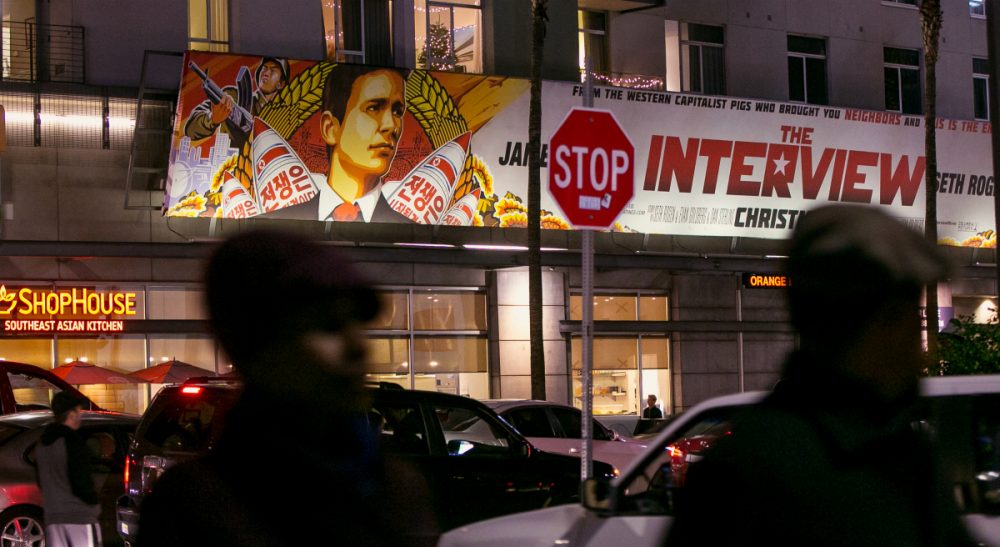Advertisement
Echoes Of North Korea On American College Campuses

Finally an outbreak of bipartisanship: Left, right and center, people are lamenting or lambasting Sony’s decision to pull "The Interview." Finally, almost everyone agrees with President Obama: Sony “made a mistake,” he opined. “We cannot have a society in which some dictator some place can start imposing censorship here in the United States.”
Really? We already inhabit a society in which petty dictators impose censorship here in the United States every day. On America’s college campuses, students as easily offended as Kim Jong Un support bans on words they’d rather not hear, demand removal of artworks they’d rather not see and deter classroom discussions of “triggering” issues they’d rather not consider (like rape, as Harvard law school professor Jeannie Suk reports).
Campus censorship is no longer news; it’s simply the new norm.
Examples abound. Campus censorship is no longer news; it’s simply the new norm. “Most U.S. Colleges Violate Students’ Free Speech Rights,” according to the Foundation for Individual Rights in Education (FIRE) — but many do so at the behest of offended students.
As FIRE President Greg Lukianoff recalls, 2014 has been the year of the heckler’s veto. Students offended or “disrespected” by someone else’s speech need not resort to sophisticated hacks and threats to silence it; they can shout down offending speakers or simply complain to compliant administrators. The University of Iowa obediently censors a work of anti-racist art because its references to racism make some students feel unwelcome or even “terrorized,” the university president apologetically explains. She offers counseling to students “negatively affected” by the art. Brown University’s president expresses solidarity with students offended by a scheduled debate about rape culture and offers counter-programming –- a lecture occurring at the same time that promises to confirm the views of offended students.
As these controversies (and many others) demonstrate, students who feel entitled to silence language or art and discussions of ideas they don’t like are enabled by school officials who share or pander to student hostility to free speech. These days, many administrators, including college presidents, demonstrate less courage or concern for free expression than Sony’s corporate chieftains.
At least Sony was confronting a genuine threat, which had already damaged its bottom line and undermined the safety and privacy of its employees. College and university administrators have nothing to fear but the anger and hurt feelings of students who are intolerant and scared of offending ideas.
These days, many administrators, including college presidents, demonstrate less courage or concern for free expression than Sony’s corporate chieftains.
America’s collegiate censors who are made to feel “unsafe” by perfectly civil debates about abortion or assault, half nude statues, or the benign, explanatory utterance of verboten words should sympathize with Kim Jong Un. After all, campus satirists have been punished for issuing much lesser “threats.” At Colorado College, two male students were found guilty of violating an anti-violence policy by publishing a parody of a feminist and gender studies publication.
How would fearful, easily offended students react to a satire like "The Interview" involving their communities? They’d rush to suppress any student newspaper article, much less an absurdist film, that joked about the assassination of even a fictional student leader. They’d demand punishment of the satire’s perpetrators, and school administrators would probably offer counseling to students traumatized by exposure to ”hateful” speech. It’s not surprising that Chris Rock doesn’t play college campuses anymore because students are so anxious “not to offend anybody.” They might feel right at home in North Korea.
